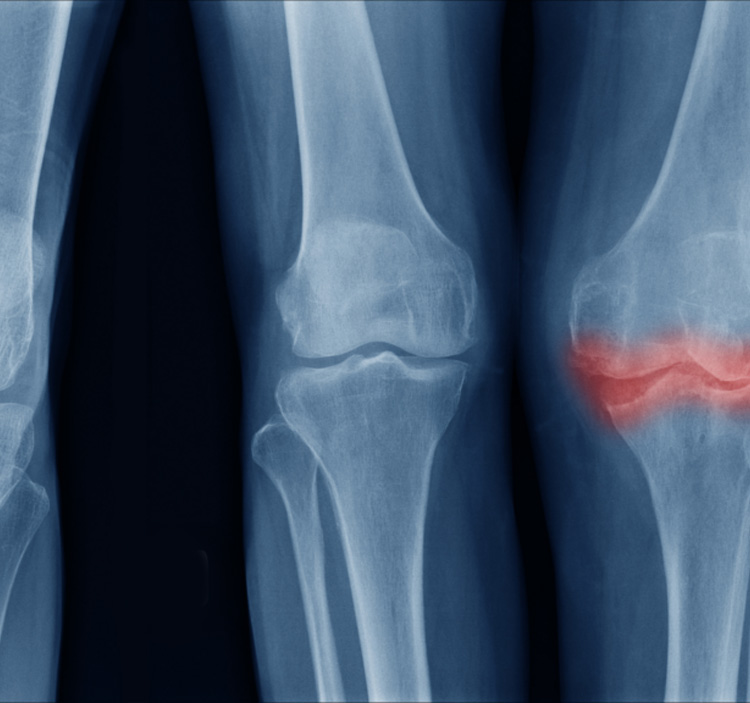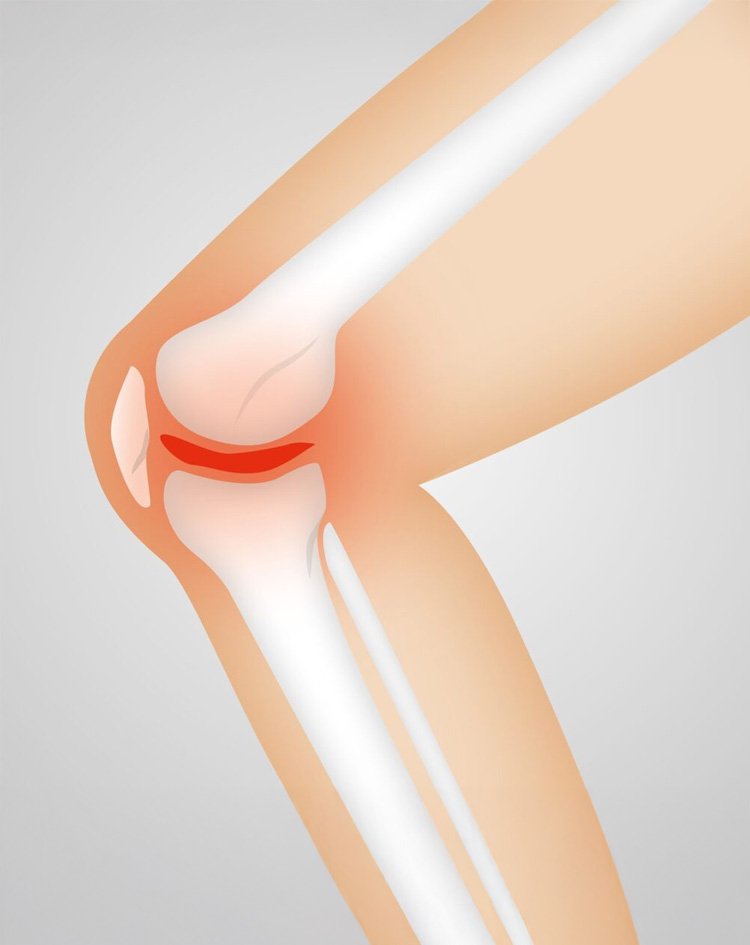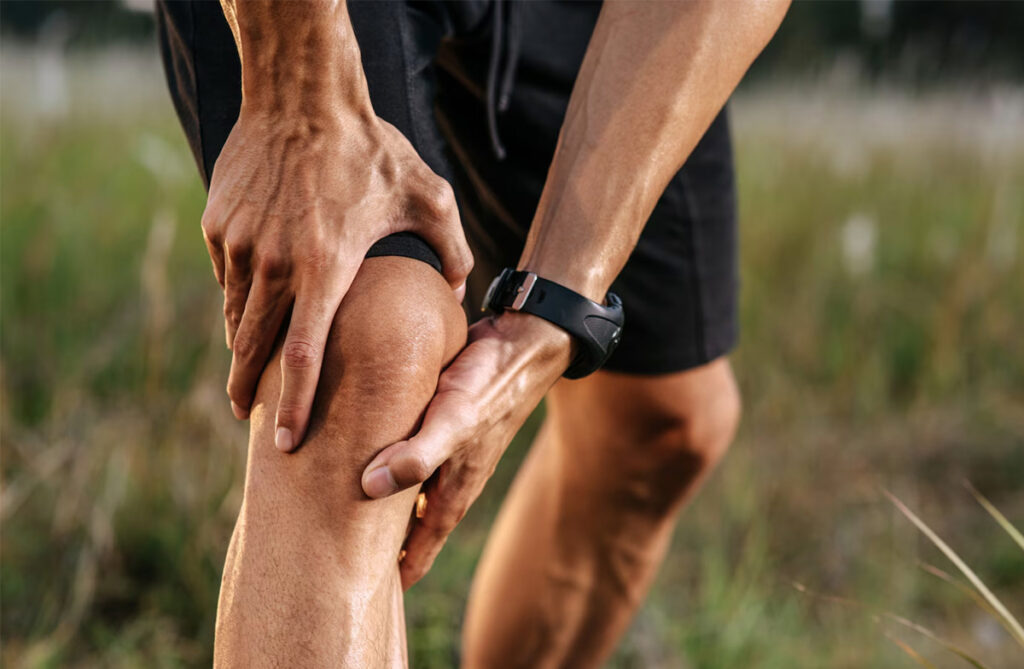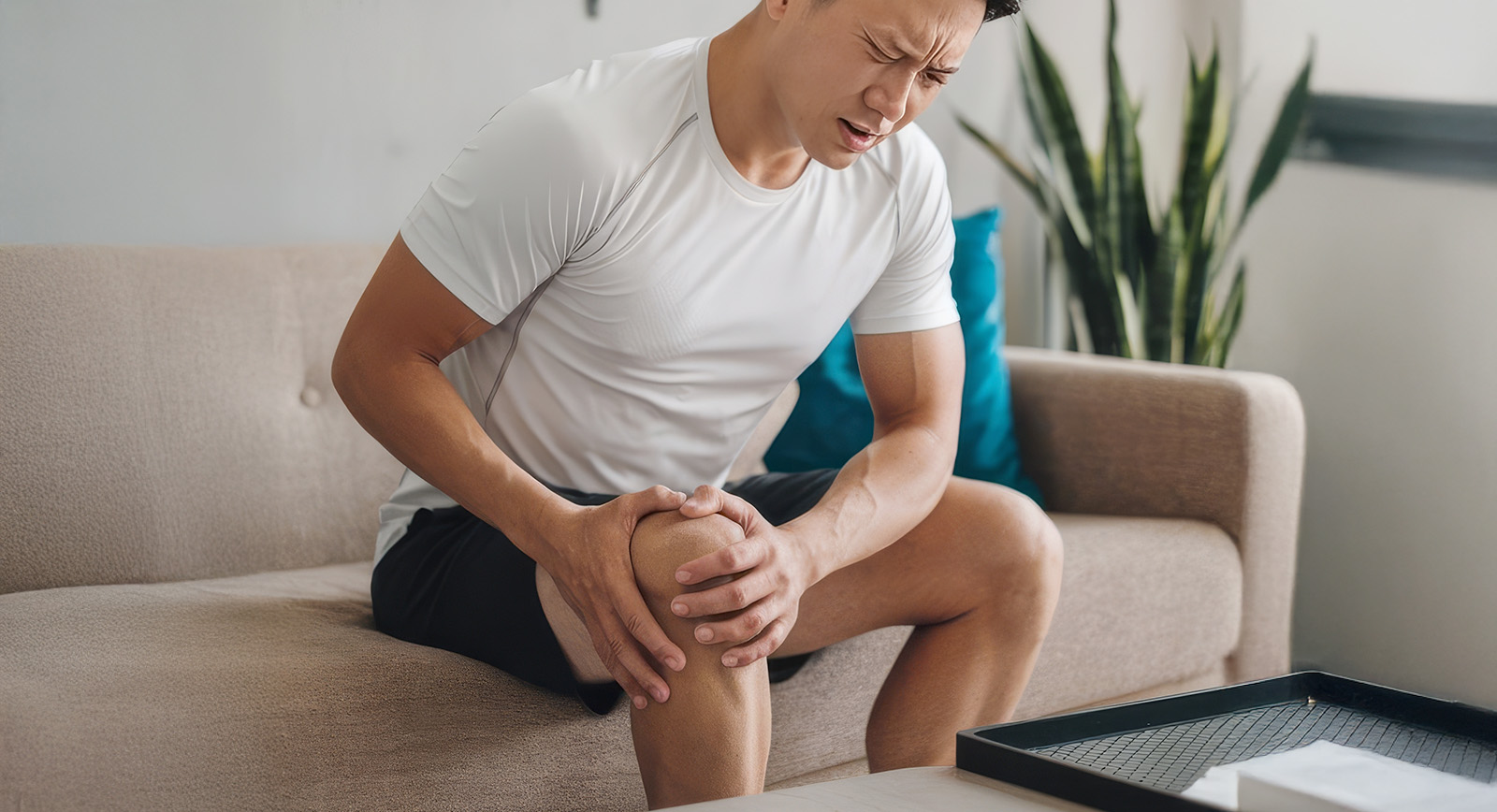Hyaluronic Injection for Knees– Intra-Articular Therapy for Osteoarthritis
Synolis VA is the top non-surgical solution for chronic knee pain, restoring lubrication and mobility with a single precise injection.

INTRODUCTION
Osteoarthritis (OA) is a progressive joint disorder resulting in joint pain, stiffness, and reduced mobility due to cartilage and synovial fluid degradation. Viscosupplementation—injecting hyaluronic acid-based solutions—is a validated approach to restore lubrication, shock absorption, and joint function.
Hyaluronic Injection for Knees are Swiss‑engineered intra-articular gels combining high-molecular-weight hyaluronic acid with sorbitol. Designed for fast, targeted symptom relief and long-lasting performance, they’re approved for treating knee and hip OA.
What Causes Osteoarthritis (OA)?
Osteoarthritis is a complex, multifactorial degenerative joint disease that affects the entire joint structure—including articular cartilage, subchondral bone, synovial fluid, and periarticular tissues. While it can affect any joint, it is most commonly found in the knees, hips, hands, and spine.
1. Cartilage Breakdown
What it is:
Articular cartilage is a smooth, rubber-like tissue that lines the ends of bones in a joint. It reduces friction and acts as a cushion during movement.
Why it happens:
- Mechanical wear and tear over time depletes the extracellular matrix (ECM), especially the loss of proteoglycans and type II collagen, which are essential for elasticity and tensile strength.
- Inflammatory cytokines (e.g., IL-1β, TNF-α) are released in response to microtrauma or age-related degeneration. These cytokines activate enzymes like matrix metalloproteinases (MMPs), which degrade the cartilage matrix.
- Chondrocyte apoptosis (cell death) increases, while regenerative activity diminishes, making it harder for cartilage to repair itself.
- Result:
The cartilage thins, cracks, and eventually erodes, exposing the underlying bone. This leads to increased bone-on-bone friction, causing pain, inflammation, and reduced joint mobility.


2. Synovial Fluid Deterioration
What it is:
Synovial fluid is a viscous substance within the joint capsule that lubricates and nourishes the cartilage. It contains hyaluronic acid (HA), which gives it its shock-absorbing and lubricating properties.
Why it happens:
- With age and inflammation, the concentration and molecular weight of HA in synovial fluid decreases.
- Oxidative stress (from reactive oxygen species) accelerates HA degradation.
- Enzymatic breakdown by hyaluronidases and inflammation-related enzymes further degrades HA.
Result:
The joint loses its natural “cushioning,” resulting in less shock absorption and more mechanical stress on cartilage and bone, worsening degeneration and increasing joint stiffness and discomfort.
3. Subchondral Bone Remodeling and Sclerosis
What it is:
The bone beneath the cartilage (subchondral bone) thickens and undergoes abnormal remodeling in OA.
Why it happens:
- Loss of cartilage exposes bone to excessive stress.
- Osteoblast activity increases, forming sclerotic (hardened) bone and osteophytes (bone spurs).
- This disrupts normal joint architecture and increases pain.
Synolis VA is the best-in-class viscosupplement for knee pain relief, combining high-molecular HA with antioxidant protection.
What are Knee Fillers?
Formulation & Device
- 2 % high-molecular-weight sodium hyaluronate (≥2 MDa) derived through bio-fermentation.
- 4 % sorbitol, a potent antioxidant that stabilizes HA, preserving rheological properties and reducing oxidative degradation.
- Offered in 2 ml and 4 ml prefilled syringes.
Visco-Antalgic Concept
This unique pairing offers:
1. Mechanical relief—HA replenishes synovial fluid for lubrication and shock absorption.
2. Biochemical protection—sorbitol scavenges free radicals, reducing inflammation and enzyme-mediated HA degradation.
Clinically proven, Synolis VA has outperformed other hyaluronic acid injections in reducing knee pain and improving function.

How It Works
Injection Protocol
- Administered by a qualified healthcare professional, typically under imaging guidance (knee/hip).
- Can be used as single 4 ml injection (Monoshot) or three weekly 2 ml injections (Multishot).
Rheological Benefits
- Exhibits visco-elastic behavior comparable to healthy synovial fluid (crossover frequency ≈ 0.4 Hz).
- After an oxidative challenge, it resists degradation better than alternatives, retaining fluid properties
Synolis VA reinvigorates degenerated knee joints by restoring viscoelasticity and reducing friction on cartilage surfaces.
Compared to traditional HA therapies, Synolis VA offers enhanced viscosity retention for sustained knee pain improvement.

Study | Finding |
Head-to-head RCT | Knee Fillers shown non‑inferior at 6 months (WOMAC pain; 79 % vs 77 % responders) |
Post-arthroscopy RCT | 2 % HA+4 % sorbitol improved pain/function in early post-op period |
Prospective open-label (13 weeks) | 50 % pain reduction after first injection; 70% responders; maintained relief |
Observational Japanese study | VAS pain reduced from 5.3 → 1.2; WOMAC improved; 92% satisfaction at 12 weeks |
Mechanistic Insights
- Sorbitol’s antioxidant effect protects HA from ROS-mediated degradation, retaining viscoelasticity.
- HA promotes chondroprotection and anti-inflammatory mechanisms, modulating cartilage biomechanical environment.
Clients choose Synolis VA at The Clifford Clinic in Singapore for its proven safety, powerful pain relief, and smoother joint movement.
Synolis VA is the best-in-class viscosupplement for knee pain relief, combining high-molecular HA with antioxidant protection.
Take the first step toward pain-free movement—speak to our specialists about Hyaluronic Injection for Knees
Who Is Suitable?
Ideal Patients
-Individuals with knee or hip OA who have failed or cannot tolerate NSAIDs, analgesics, or corticosteroids.
-Prefer to defer or avoid surgical intervention.
-Prefer a single or short-course non-pharmacological therapy.
Contraindications
-Local joint or systemic infection.
-Known sensitivity to HA or sorbitol.
-Severe coagulopathy or immunodeficiency—assessed case-by-case.


What to Expect
- Consultation & imaging confirmation of OA grade.
- Injection session (2 ml ×3 or 4 ml single dose).
- Post-injection care: mild rest, avoid heavy exertion for 48–72 hours.
- Symptom improvement within 3–7 days, with peak benefit around 4–12 weeks and retention up to 6 months or more.
Side effects: Typically mild—temporary injection site soreness, swelling, or warmth.
Don’t let joint pain limit your life—schedule a personalised OA treatment assessment now.
Why Choose Us for Hyaluronic Injection for Knees Treatment?
- Expert injectors: orthopedic specialists trained in image-guided viscosupplementation.
- Individualised protocols: choosing mono- or multi-injections based on clinical need.
- Evidence-based care: guided by high-quality clinical and mechanistic data.
Patient-centred approach: post-treatment support for activity resumption and follow-up assessments.
Stop letting knee pain slow you down—Synolis VA offers a reliable, doctor-supervised solution with measurable benefits.
Frequently Asked Questions
What exactly are knee fillers, and how do they work?
Hyaluronic Injection for Knees refer to injections of hyaluronic acid (HA) into the knee joint, designed to restore the viscoelastic properties of synovial fluid. In a healthy knee, HA provides lubrication, shock absorption, and joint cushioning. In osteoarthritis, HA levels and quality decline, leading to increased friction, inflammation, and cartilage wear. Injecting HA directly into the joint helps reduce pain, improve mobility, and support smoother joint motion by replenishing the natural joint fluid.
Are all Hyaluronic Injection for Knees the same, or do different types exist?
Not all are created equal. They differ in:
- Molecular weight: Low, medium, or high; higher weights may last longer but can also cause more stiffness.
- Cross-linking: Some formulations are cross-linked for durability, while others are non-crosslinked
- Additives: Some modern formulations include antioxidants like sorbitol or mannitol to protect the HA from degradation.
The choice of product depends on your stage of osteoarthritis, age, activity level, and previous response to treatment.
How long do the effects of Hyaluronic Injection for Knees last, and how often should I repeat the treatment?
The effects can vary, but symptom relief typically begins within 1–2 weeks and may last anywhere from 3 to 12 months, depending on the formulation and patient factors. Some products are designed as a single-shot treatment while others require 3–5 weekly injections. Repeat treatments can be safely administered every 6–12 months, but should be guided by symptom recurrence and joint health monitoring.
Are there risks or side effects associated with Hyaluronic Injection for Knees?
Knee fillers are generally well-tolerated and have a low complication rate. Possible but rare side effects include:
- Temporary joint swelling, warmth, or discomfort after injection (resolves within 48–72 hours)
- Allergic reaction (extremely rare, especially in modern biofermentative products)
- Infection (very rare when done under sterile technique)
- In some patients, the filler may not provide significant relief, especially in end-stage osteoarthritis
Patients should avoid intense physical activity for 24–48 hours post-injection to allow proper distribution of the gel within the joint.
Meet our specialists

Dr Edwin Tan
Bachelor of Medicine and Bachelor of Surgery (MBBS) from National University of Singapore (2004).
Membership of the Royal College of Surgeons (Edinburgh) (2008).
Dr. Edwin Tan is a Consultant Orthopaedic Surgeon with advanced training in Sports and Reconstructive Surgery, particularly for upper limb and knee conditions. A graduate of NUS with postgraduate credentials from the Royal College of Surgeons (Edinburgh), he completed a prestigious fellowship in shoulder and elbow surgery at Imperial College London. Renowned for his expertise in Reverse Shoulder Arthroplasty, Dr. Tan has performed over a thousand successful procedures. He has also contributed to surgical education at Duke-NUS and provided care across the Asia-Pacific region, treating athletes and patients seeking to restore mobility and function.

Dr Gerard Ee
MBBS (UK),
Member of the Royal College of Surgeons (Edinburgh)
DP Dermatology (Cardiff)
Dr Gerard Ee is the founder and medical director at The Clifford Clinic.
He is a highly experienced medical professional specializing in non-surgical treatment of joint pain, particularly knee-related conditions.
With extensive training and practical experience in orthopaedic surgery, Dr Ee has held medical officer positions in renowned institutions such as National University Hospital and Singapore General Hospital, accumulating substantial expertise in diagnosing and managing knee disorders.
His academic contributions include multiple peer-reviewed publications on advanced knee surgery techniques, including minimally invasive knee arthroplasty and computer-assisted joint-line restoration. Committed to enhancing patients’ mobility and quality of life, Dr Ee prioritizes effective, non-invasive solutions to knee pain, leveraging his deep knowledge and clinical skills.

Dr Dinesh Sirisena
MBBS, Bart’s and The London Medical School
Dr. Dinesh Sirisena is a Consultant in Sports and Exercise Medicine with extensive experience treating elite athletes across football, rugby, athletics, hockey, and MMA. A graduate of Bart’s and The London Medical School, he specialises in non-invasive treatments such as ultrasound-guided spine injections, PRP, prolotherapy, hydrodilatation, and shockwave therapy. He has served in leadership roles including Local Medical Director of the Buckinghamshire MSK Service and has worked with NHS trusts and Khoo Teck Puat Hospital in Singapore. Dr. Dinesh is also an active educator and researcher, holding academic appointments at NUS and NTU medical schools.
Our Services
EFFECTIVE SOLUTIONS
Facing persistent knee pain? Take control of your mobility and comfort—schedule your consultation today and begin your journey towards relief with personalized, expert care.

Synolis VA is the top non-surgical solution for chronic knee pain, restoring lubrication and mobility with a single precise injection.





